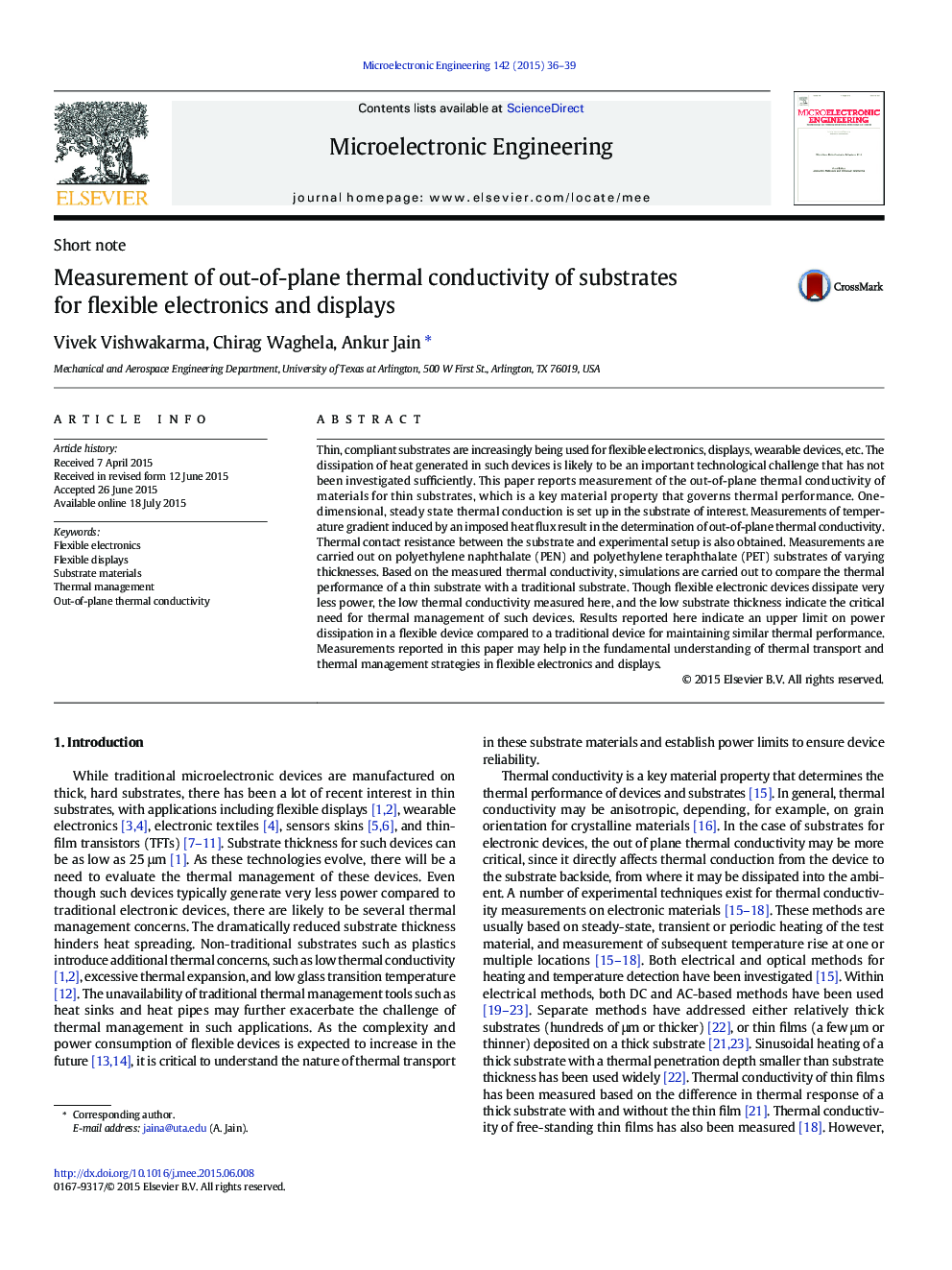| Article ID | Journal | Published Year | Pages | File Type |
|---|---|---|---|---|
| 542215 | Microelectronic Engineering | 2015 | 4 Pages |
Thin, compliant substrates are increasingly being used for flexible electronics, displays, wearable devices, etc. The dissipation of heat generated in such devices is likely to be an important technological challenge that has not been investigated sufficiently. This paper reports measurement of the out-of-plane thermal conductivity of materials for thin substrates, which is a key material property that governs thermal performance. One-dimensional, steady state thermal conduction is set up in the substrate of interest. Measurements of temperature gradient induced by an imposed heat flux result in the determination of out-of-plane thermal conductivity. Thermal contact resistance between the substrate and experimental setup is also obtained. Measurements are carried out on polyethylene naphthalate (PEN) and polyethylene teraphthalate (PET) substrates of varying thicknesses. Based on the measured thermal conductivity, simulations are carried out to compare the thermal performance of a thin substrate with a traditional substrate. Though flexible electronic devices dissipate very less power, the low thermal conductivity measured here, and the low substrate thickness indicate the critical need for thermal management of such devices. Results reported here indicate an upper limit on power dissipation in a flexible device compared to a traditional device for maintaining similar thermal performance. Measurements reported in this paper may help in the fundamental understanding of thermal transport and thermal management strategies in flexible electronics and displays.
Graphical abstractFigure optionsDownload full-size imageDownload as PowerPoint slide
